Digital Poster
Clinical Neuroscience
ISMRM & ISMRT Annual Meeting & Exhibition • 10-15 May 2025 • Honolulu, Hawai'i

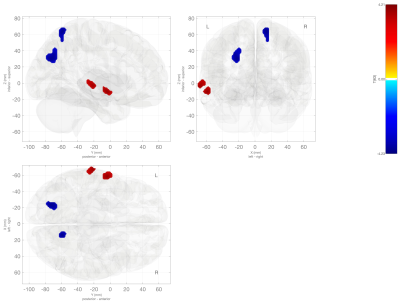 |
Computer Number: 81
1452. Independent
Components and Functional Connectivity in Resting-State fMRI: A
Comparative Study of Primiparous and Nulliparous Subjects.
C. Gu, Y. Shu, Y. Gao, W. Su, Q. Zhang, J. Xin, X. Du, K.
Zhang
Mayo Clinic, Rochester, United States
Impact: Our study may help fill critical gaps in our
understanding of the maternal brain's functional
adaptations, enhancing our knowledge of the mental and
physical changes that occur on women after childbirth.
|
|
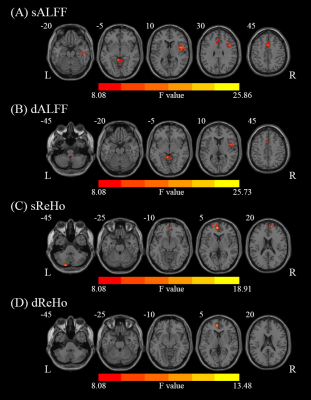 |
Computer Number: 82
1453. Altered
and evolution of the static and dynamic spontaneous brain
activity in patients with Spinocerebellar ataxia type3
R. Sha, H. Qiu, Y. Xu, M. Hu, J. Zhao
Department of Radiology, The First Affiliated Hospital, Sun Yat-Sen University, Guangzhou, China
Impact: Compared with HCs, SCA3 patients exhibit an
abnormal and persistent deterioration of spontaneous brain
activity as the disease progresses, which highlighted that
damaged brain activity might be the potential imaging marker
for monitoring SCA3.
|
|
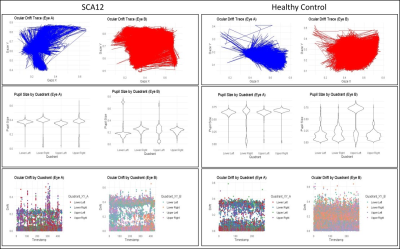 |
Computer Number: 83
1454. Correlation
of abnormal eye movements and functional neuroimaging in
Spinocerebellar Ataxia Type 12 patients as compared to healthy
control
P. ., A. Srivastava, P. Bhat, M. Kumar, S. S. Kumaran, A.
Garg, R. Agarwal, A. Nehra, R. Rajan, D. Joshi
All India Institute of Medical Sciences, New Delhi, India
Impact: Correlation of abnormal eye movements and
functional neuroimaging in Spinocerebellar Ataxia Type 12.
|
|
|
Computer Number:
1455. WITHDRAWN |
||
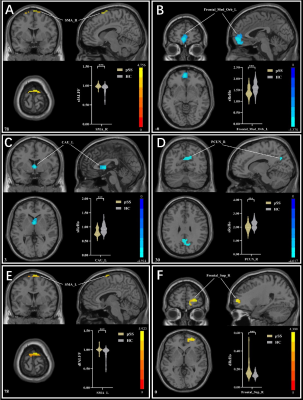 |
Computer Number: 84
1456. Regional
brain function study in patients with primary Sjögren's syndrome
Synopsis
C. Hu, L. Wang, J. Huang, Y. Shang, X. Zhang, X. Du, H. Cao,
Z. Ding, Z. Han, P. Wei
Hangzhou First People's Hospital, Hangzhou, China
Impact: Our research indicates that static and dynamic
indicators have different sensitivities in detecting
abnormal activities across various regions, and the combined
application of two indicators is more conducive to the
comprehensive study of regional brain functional changes in
pSS patients.
|
|
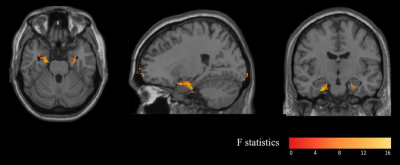 |
Computer Number: 85
1457. Functional
Brain Alterations in Paroxysmal Kinesigenic Dyskinesia
Associated with PRRT2 Mutations: A Resting-State fMRI Study
Y. Song, J. Lin, B. Guo, Q. Gong
Department of Radiology, Peking Union Medical College Hospital, Chinese Academy of Medical Sciences and Peking Union Medical College, Beijing, China
Impact: Altered brain activity in PKD patients based on
fALFF could help further understand the
neuropathophysiological mechanisms of the disease and search
for objective markers.
|
|
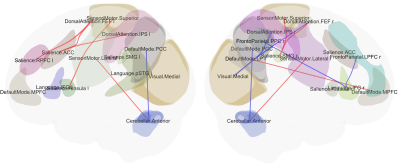 |
Computer Number: 86
1458. Resting-State
Brain Networks Dysfunction Associated with Beta-Amyloid Burden
in Alzheimer's Disease: A Multimodal Neuroimaging Study
W. Guo, H. Shao, Y. Zhang, H. Zheng, D. Liang, J. Liu, L.
Zhang, Z. Hu
Lab of Molecular Imaging and Medical Intelligence, Department of Radiology, Longgang Central Hospital of Shenzhen, Shenzhen, China
Impact: This study investigated the associations between
functional brain networks and beta-amyloid in AD, furthering
our comprehension of this brain disorder. Moreover, the
results proposed that functional connnectivity and
functional brain networks had the potential to detect early
changes of AD.
|
|
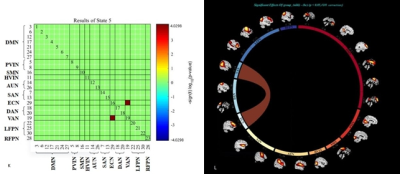 |
Computer Number: 87
1459. Aberrant
static and dynamic functional network connectivity in patients
with noise-induced hearing loss
R. Huang, A. Wang, G. Zhang
yantaishan hospital, Yantai, China
Impact: We provide neuroimaging evidence of sFNC to dFNC
brain alterations in patients with NIHL. These methods may
unravel the alterations among transmodal plasticity brain
areas not involved in the hearing process, and identify new
biomarkers to guide its treatment.
|
|
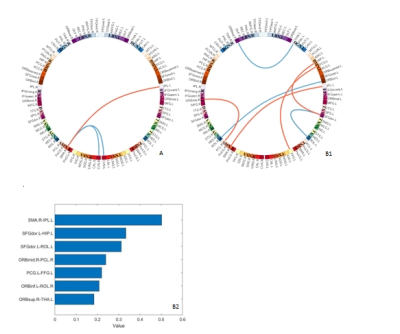 |
Computer Number: 88
1460. Dynamic
functional connectivity changes in noise-induced hearing loss: a
resting-state fMRI study with machine learning-based
classification
R. Huang, A. Wang, G. Zhang
yantaishan hospital, Yantai, China
Impact: We applied a sliding window dFC method to
examine the whole-brain activity in NIHL, and employed
machine learning techniques to construct a support vector
machine model. Our findings provide a better understanding
of the brain network alterations associated with NIHL.
|
|
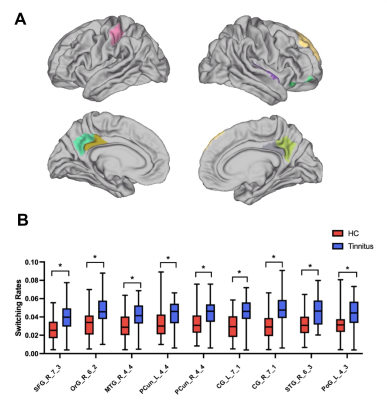 |
Computer Number: 89
1461. Multilayer
Analysis of Dynamic Network Reorganization in Tinnitus Patients
C. Yu, C. Fang, K. Li, X. Liu, J. Zheng, M. Wang, X. Zhang,
M. Wang
Zhengzhou University People’s Hospital & Henan Provincial People’s Hospital, Zhengzhou, China
Impact: This study offers a novel perspective on the
reconstruction of dynamic functional networks in tinnitus
patients, uncovering the link between brain functional
remodeling and tinnitus severity, and establishing a
potential foundation for future clinical interventions.
|
|
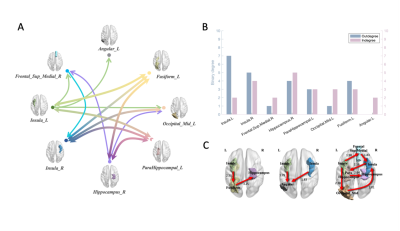 |
Computer Number: 90
1462. Gray
Structure of Cognitive Impairment in Age-related hearing loss
Based on Structural Covariance Causal Networks
Y. Wang, W. Li, S. Wang, W. Fu, L. Li, F. Gao, F. Ren
Tiangong University, School of Life Sciences, Tianjin, China
Impact: The insula and hippocampus play a key role in
the process of ARHL brain damage and provide evidence for
sensory deprivation theory and indicates that brain
structural reorganization is involved in the process of
hearing loss and cognitive impairment.
|
|
 |
Computer Number: 91
1463. Abnormal
Structural and Functional Connectivity Coupling in Patients With
Chronic Tinnitus
J. Xie, W. Zhang, Y. Bai, W. Wei, K. Li, M. Wang, X. Zhang,
M. Wang
Zhengzhou University People’s Hospital , Zhengzhou, China
Impact: Our findings revealed specific SC-FC coupling
alterations in patients with tinnitus, offering potential
biomarkers for assessing severity and providing insights
into neural mechanisms that could guide future intervention
strategies.
|
|
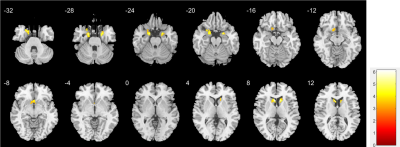 |
Computer Number: 92
1464. Functional
Magnetic Resonance Imaging: A Potential Method for Acute
Mountain Sickness Prediction
H. Zhang, J. Feng, L. Ma
First medical center of Chinese PLA General Hospital , Beijing, China
Impact: Rs-fMRI could be used for investigations of AMS
prediction as a noninvasive way. The basic brain activities
and its alterations during pain stimulus might suggest the
AMS susceptibility difference.
|
|
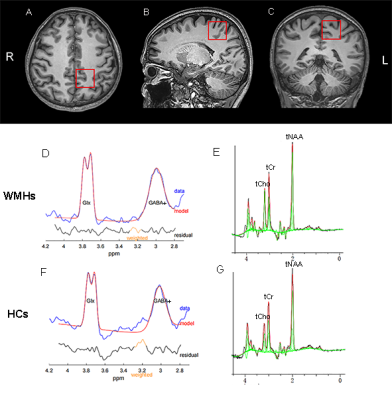 |
Computer Number: 93
1465. Reduced
GABA concentration in patients with white matter
hyperintensities
X. Wang, C. Wang, P. Miao, Y. Wei, L. Lin, Z. Li, Y. Zhang,
J. Cheng, C. Ren
The First Affiliated Hospital of Zhengzhou University, Zhengzhou, China
Impact: This study demonstrated significant reductions
of GABA+ levels in centrum semiovale in WMH patients when
compared to HCs. Reduced GABA+ concentrations identified in
this study may be underlying pathological mechanisms for the
concealed cognitive deficits in WMHs patients.
|
|
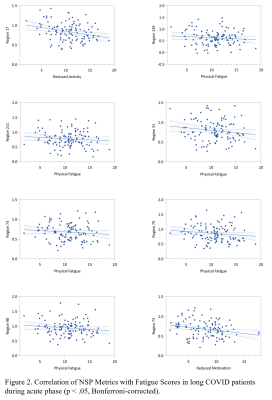 |
Computer Number: 94
1466. Long
COVID promotes brain network integration and reduces segregation
during the acute phase
X. Niu, G. Ye
Department of Medical Imaging, the First Affiliated Hospital of Xi’an Jiaotong University, China, Shaanxi Province, Xi’an, Xi’an, China
Impact: Unlike the typical cross-sectional studies
conducted six months or more after COVID-19 infection, our
study offers a unique opportunity to understand the early
neural mechanisms of long COVID and their association with
fatigue symptoms.
|
|
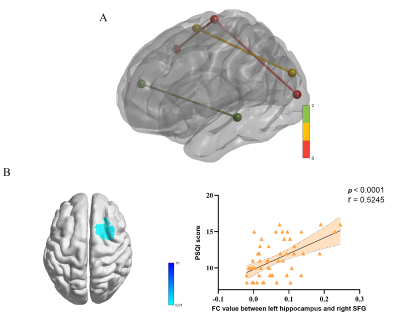 |
Computer Number: 95
1467. Functional
connectivity alterations associated with COVID-19-related sleep
problems: a longitudinal resting-state fMRI study
H. Chen, L. Li, Y. Sun, Y. Liu, W. Chen, P. Liu, Y. Liao, A.
Xie
Department of Radiology, The People's Hospital of Hunan Province(The First Affiliated Hospital of Hunan Normal University), Changsha, China
Impact: This study provides new insight into the changes
in brain function associated with sleep problem (SP) after
COVID-19, and these changes may partially explain the
development of SP.
|
The International Society for Magnetic Resonance in Medicine is accredited by the Accreditation Council for Continuing Medical Education to provide continuing medical education for physicians.